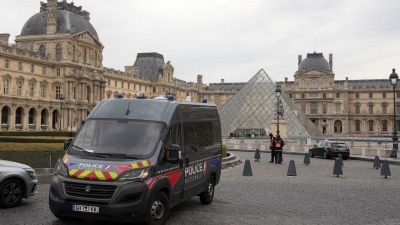Stay updated with the latest - Click here to follow us on Instagram
Cyprus President in India: Need to strengthen mechanism to counter global terror, says Pranab Mukherjee
President Mukherjee said both India and Cyprus suffer from the scourge of terrorism.
 President Pranab Mukherjee.
President Pranab Mukherjee.
As Prime Minister Narendra Modi welcomed Cyprus’s support to India’s bid for membership of the 48-nation Nuclear Suppliers Group (NSG), President Pranab Mukherjee has said there is an urgent need to strengthen the global counter-terrorism mechanism so that the menace can be fought jointly by the international community. At a banquet hosted in honour of visiting President of Cyprus Nicos Anastasiades, Mukherjee said both India and Cyprus suffer from the scourge of terrorism.
“This global menace needs to be fought by all civilised societies and countries — not just individually, but at a bilateral, regional and global level,” Mukherjee said, welcoming the Cypriot president on his first state visit to India.
Anastasiades reaffirmed support for the “enhancement of the representative character” of the United Nations Security Council (UNSC) with India as a permanent member in the expanded body. He emphasised on making the UNSC “more effective, efficient and representative of the contemporary geopolitical challenges”.
The two leaders also supported forward movement on the Intergovernmental Negotiations (IGN) on UNSC reform and reiterated their commitment to make continuous efforts to move towards text-based negotiations.
A joint statement released by the Ministry of External Affairs said, “Both leaders underlined their shared interest in strengthening global non-proliferation objectives. In this context, Prime Minister Modi appreciated the support of Cyprus to India’s membership of the Nuclear Suppliers Group. India’s membership will enable it to contribute further to global non-proliferation objectives.”
The two sides exchanged views on developments in their respective regions and on international issues of common concern, most notably the fight against international terrorism, according to the statement. They also discussed ways to reinforce measures to stem the financing of terrorism and disrupt the revenue stream towards terrorist groups, it said.
During their delegation-level talks on Friday, Modi and Anastasiades had strongly pitched for decisive action against states supporting, sheltering and sustaining “violence factories” in their regions.
“The two sides welcomed the recent adoption of UN Security Council Resolution 2347 (2017), aiming to combat the unlawful destruction of cultural heritage, religious sites and artifacts, and the smuggling of cultural property by terrorist groups during armed conflict,” the statement said.
Both countries also shared the view that the successful conclusion of the Comprehensive Convention on International Terrorism (CCIT), proposed by India at the UN, remains a priority and will be a decisive step to further strengthen the global normative framework that will support vigorous international action against terrorism.
Mukherjee said there is an urgent need to strengthen the global counter-terrorism legal framework to combat the scourge of international terrorism. “India seeks to build a broad consensus at the United Nations for finalisation of the draft Comprehensive Convention on International Terrorism and early adoption of the CCIT in the UN,” he said.







